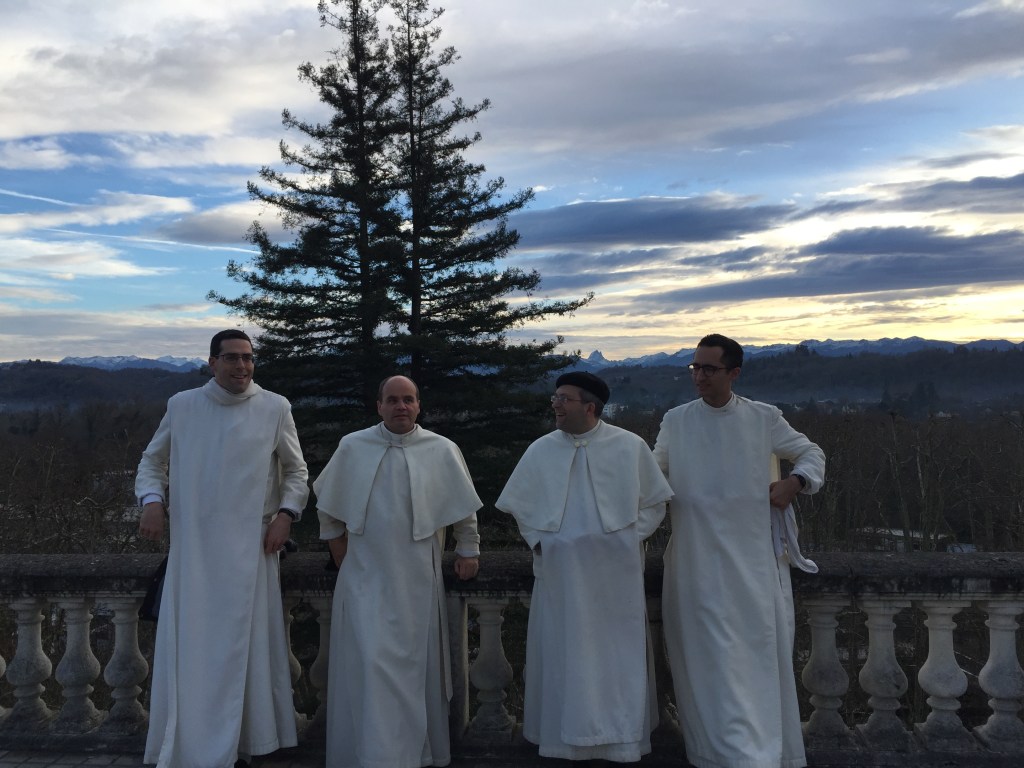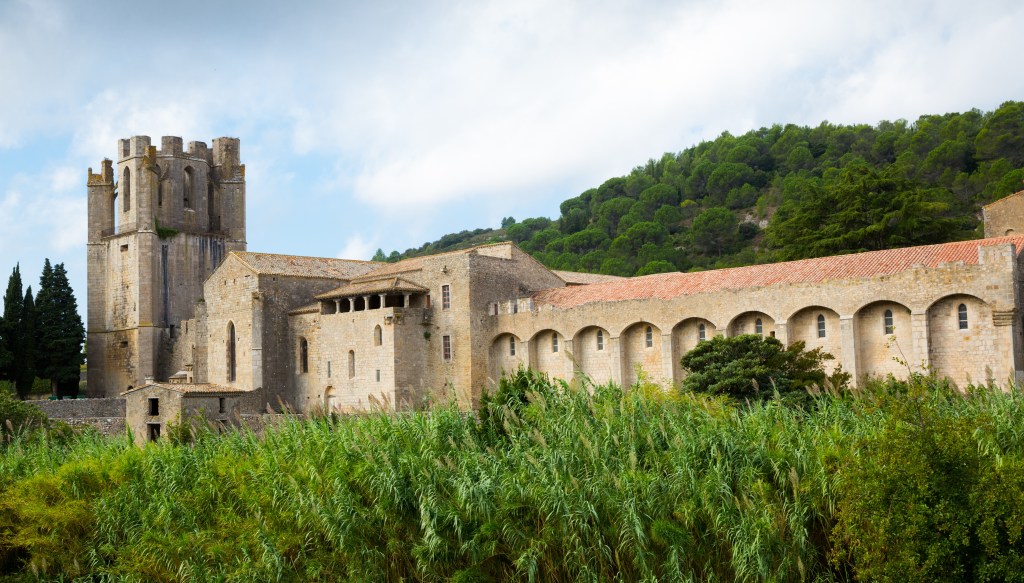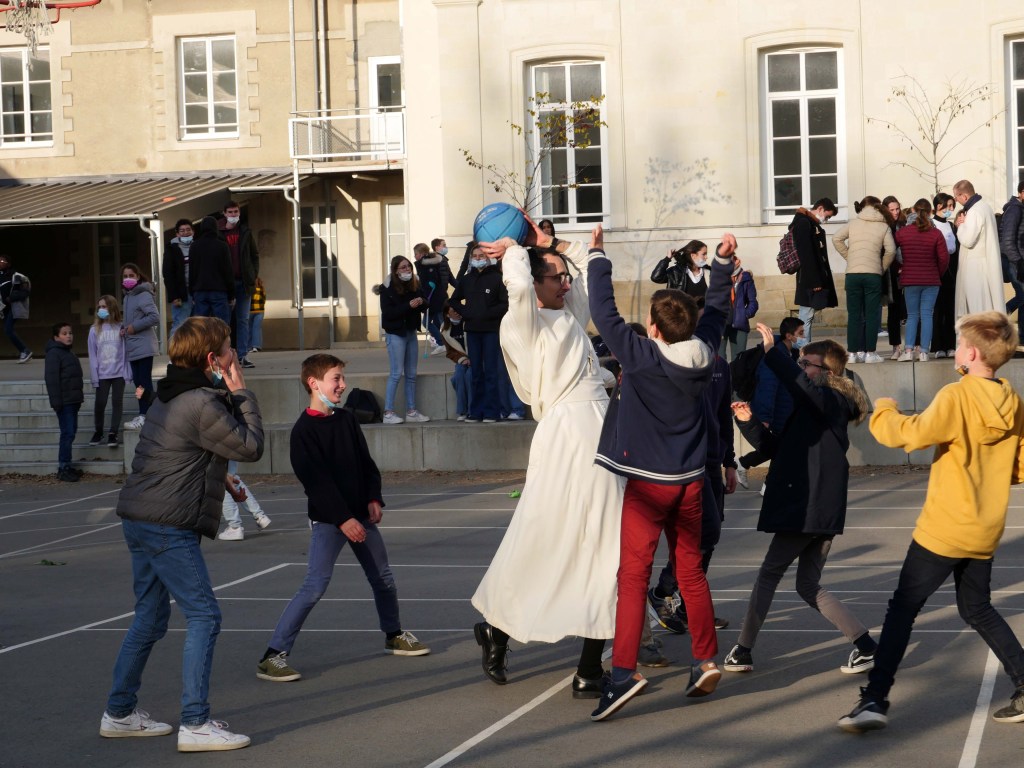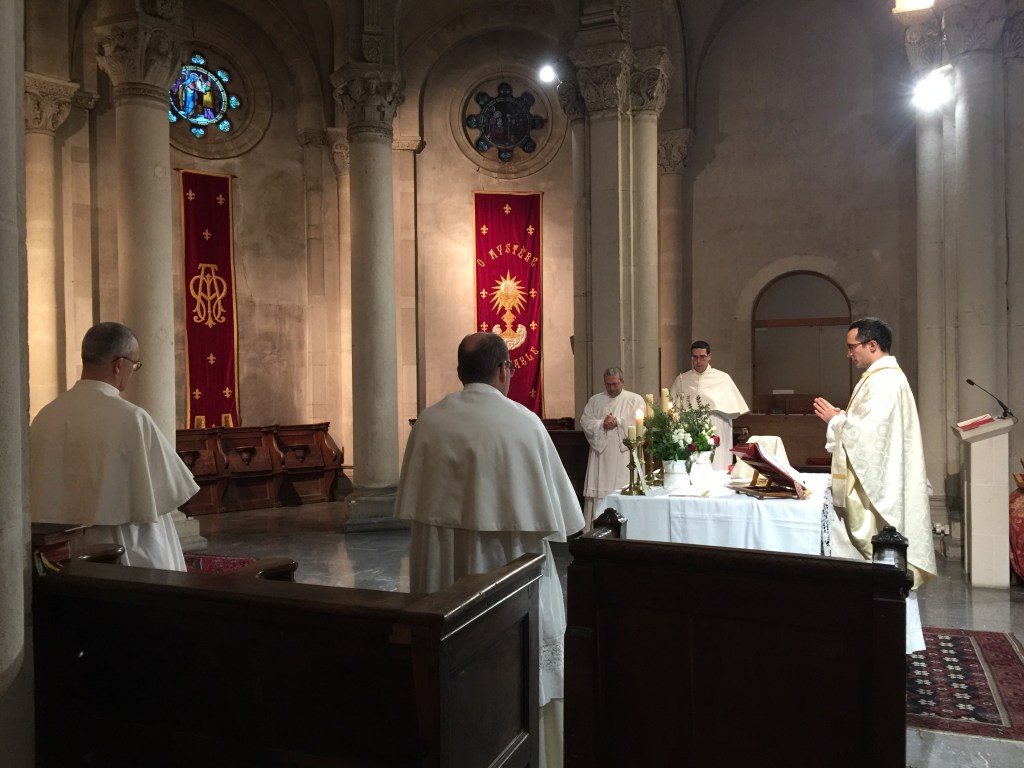Componentity
Just Copy & Paste
Prior of growing abbey talks about their life and ministry
For 19 years now, the Canons Regular of the Mother of God have been present at the Abbey of Sainte-Marie de Lagrasse, set in a magnificent landscape in the heart of Occitania (in southern France). Since then, the 40 canons—there were 23 when they arrived in 2004—have led a life of prayer according to the rule of St. Augustine, but also of local pastoral ministry, providing services for the diocese.
Expanding to a new location
In September 2023, four of them moved west to the city of Pau, in the diocese of Bayonne. There at the installation Mass on October 11 the local ordinary, Bishop Marc Aillet, entrusted them with the task of animating and bringing to life a home, “a spiritual oasis where everyone can pray, be listened to, and rest.”

This huge monastery, covering almost 43,000 square feet, is currently being renovated. The Jesuits worked here for almost 150 years. Eventually, the building will house the canons’ priory, the diocesan center, a student residence, and a family center run by the Familya network. The canons will be responsible for coordinating all these projects.
“Our four brothers, who have been on site since September, sing the daily liturgy of the hours and are already welcoming all those who come to ask for a sacrament or spiritual guidance. They also work with the city’s students, and visit the sick in hospital and prisoners at the Pau prison,” Father Dominique explains to Aleteia. At the age of 44, he has already been the prior of Lagrasse abbey for ten years. His age is the average age of the members of the community. “While the majority of us were born in the 1980s, our youngest brother is 22 and the oldest is 83,” he explains.
The Rule of St. Augustine
The vocation of the canons of Lagrasse is to live a contemplative life and an apostolate in the world. “This apostolic dimension is part of the Augustinian tradition, since the first canons to live with St. Augustine were members of the diocesan clergy,” Fr. Dominique likes to point out.
In addition to their new mission in Pau, where they will eventually number eight brothers, the canons carry out various ministries at Lagrasse Abbey and in the surrounding area. They welcome the faithful at the abbey, preach, provide liturgies such as funerals and baptisms, and organize trips abroad for pilgrimages and other retreats.

Expanding in more ways than one
In this religious jewel founded by Charlemagne in 779, the canons are also continuing maintenance, renovations, and expansion work, while welcoming numerous retreatants in a completely restored guesthouse.
Among the retreatants who have stayed there are several French authors and intellectuals, who came to spend a few days in silence. Their book Trois jours et trois nuits (“Three days and three nights”), recounting their impressions, came out in 2021. It was a great success in bookstores, helping to finance restoration work.
“We’re in the process of finishing the transept extension, but as far as the church expansion is concerned, we won’t have the necessary authorizations and financing to finish before 2026,” continues the prior.
Whatever the case, these men of God have time on their side. What they want most is to last, to form the faithful, and to welcome them well. “Our primary message is to transmit our friendship in Christ, in concord and fraternal joy, and to share this atmosphere of joy and peace in the Church of Rome on which we depend”.
Pastoral care in the diocese
Fr. Dominique makes no secret of the fact that their move to Lagrasse caused quite a stir at the time. It took time and the influence of Bishop Bruno Valentin, the local bishop since 2022, to calm and smooth relations.
“When he arrived, the bishop made it clear from the outset that he wanted the unity of his diocese and the development of pastoral care. Meetings and dialogue helped to overcome any misgivings. Now, we’re actively involved in the life of the diocese, providing burial and baptism services, serving as chaplains, and making home visits and visits to nursing homes. There’s no shortage of work to be done in the diocese of Carcassonne!” he assures us. He is happy to note that they receive more people every day—both the curious and the faithful — “especially during summer vacation.”

Their white habits do not go unnoticed in the region, making them easily identifiable. “People also come to us because they know they can easily find a priest to listen to them.”
The success of the book has undoubtedly also played a part, as the guesthouse often welcomes people who are curious or far removed from religion, who come here in search of calm and reassurance.
Their very traditional-style Latin liturgy may come as a surprise to some. However, the prior says he’s careful to ensure that this liturgy is not a barrier but, on the contrary, an opportunity to immerse oneself in prayer. “Our readings are in French, and as for the song repertoires, we alternate between Gregorian and more well-known or popular songs. People are often touched.”

A vocation to work and prayer, focused on Christ
While this was the case for some of the authors of the best-selling book, Fr. Dominique admits outright that “none of them came back,” no doubt citing “their overloaded agendas.” “We’d need more time to keep in touch with them, but this ‘publicity stunt’ isn’t our mission, so we concentrate more on our vocation,” he admits. He only regrets that the book didn’t capture “the beauty of the conversations and encounters we had with each person, and the fraternity that resulted.”
In addition to attending to the faithful and its hotel services, Lagrasse Abbey runs a brasserie and a store, and the brothers are also responsible for gardening, laundry, and cooking, “assisted by five salaried employees and around 30 volunteers.”
It’s an active monastic life, therefore, supported by donations from the faithful and patrons. Above all, it’s a life turned towards Christ, in which the canons let themselves be guided by the words of St. Augustine: “First of all, since this is why you have come together in community, dwell together in the house and be of one mind and one heart, directed towards God.”
FranceReligious LifeVocations


